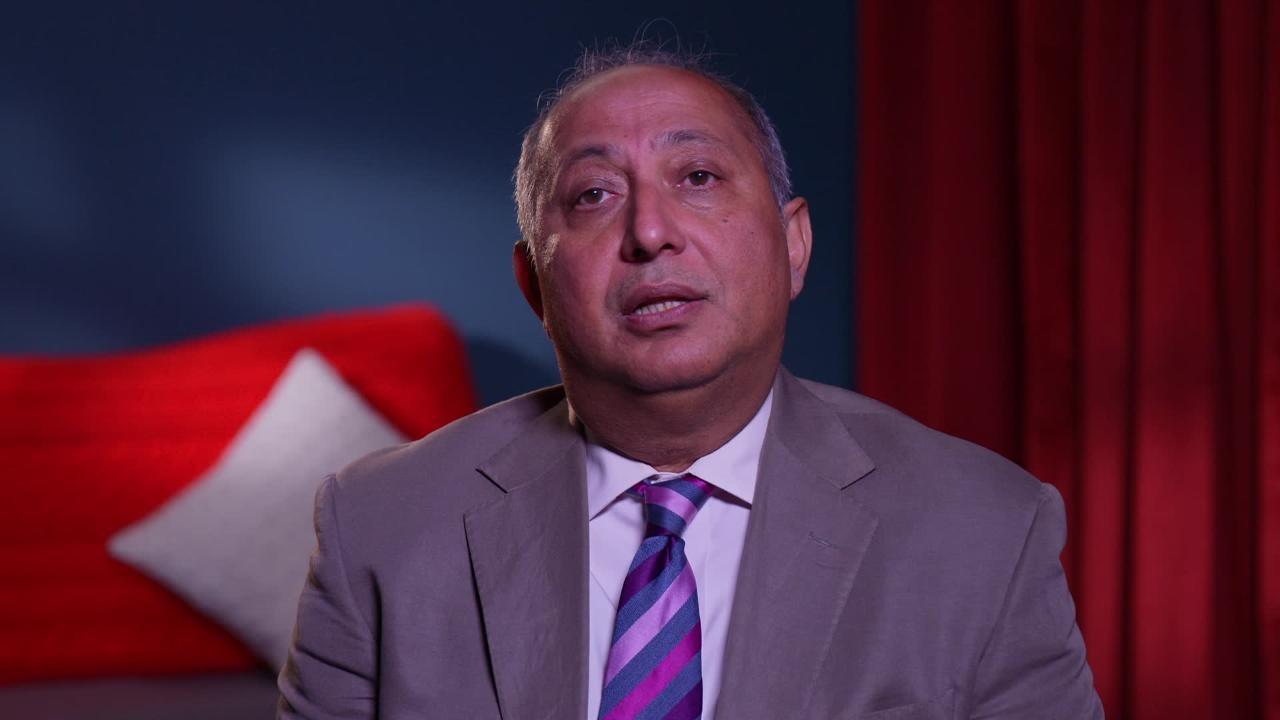
Video: What are the different types of mental health disorder?
Peer reviewed by Dr Sarah Jarvis MBE, FRCGPLast updated by Prof Swaran Singh, FRCPsychLast updated 28 Dec 2017
Meets Patient’s editorial guidelines
- DownloadDownload
- Share
- Language
- Discussion
The brain is a complicated organ, which makes mental health a complex subject. There are many types of mental health disorder, from the mild to the severe and even potentially life-threatening. Our experts explain some of the more common types you may encounter.
In this article:
Playlist: Mental Health Disorders
9 videos
What is depression?
Prof Swaran Singh, FRCPsych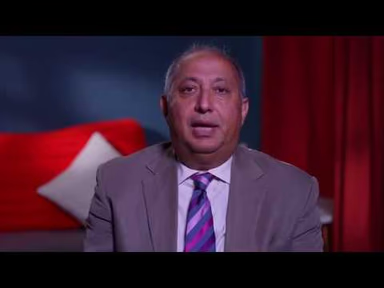
What is depression?
Prof. Swaran Singh, FRCPsych
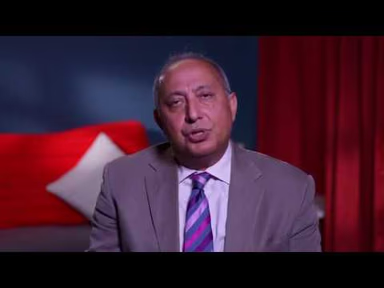
What is anxiety?
Prof. Swaran Singh, FRCPsych

What is generalised anxiety disorder?
Prof. Swaran Singh, FRCPsych

What is social anxiety disorder?
Prof. Swaran Singh, FRCPsych

What is OCD?
Prof. Swaran Singh, FRCPsych
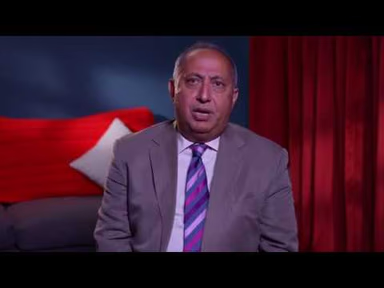
What is seasonal affective disorder?
Prof. Swaran Singh, FRCPsych
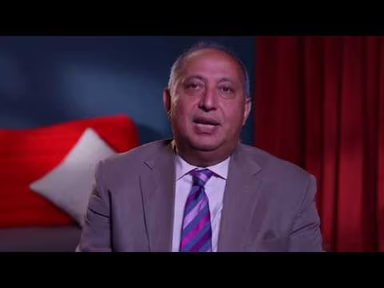
What is schizophrenia?
Prof. Swaran Singh, FRCPsych

What is anorexia?
Dr. Sarah Jarvis MBE, FRCGP
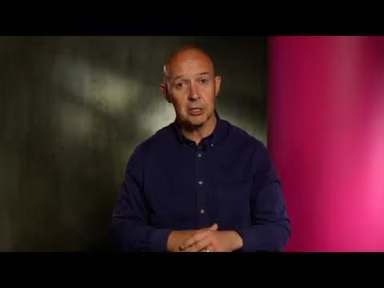
What is insomnia?
Dr. Roger Henderson, MBBS
Continue reading below
What is depression?
Prof. Sawarn Singh
All of us feel low from time to time. But some of us can sometimes feel so low that we can’t pull ourselves out of it. When that happens we can experience other symptoms like feeling hopeless, irritable, like feeling things will never get better, like having disturbed sleep, disturbed appetite, not being able to concentrate, not being able to focus, feeling excessively tired, having a lot of negative thoughts about yourself, feeling something terrible might happen, feeling guilty, remorseful or not worthy.
When you get this cluster of symptoms you may be experiencing a clinical depression. If you are experiencing depression tell your GP, seek help. We have very effective treatments for depression. Talking therapies work, they help you understand why you are feeling the way you are and how to change that. Sometimes, talking therapies are combined with medication in more severe cases because medication can bring that initial lift of mood which allows you to participate in talking therapies more effectively. All medicines are effective; they just differ in their side effects. So, seek help get the right treatment, there is the right treatment out there for you and you will feel better.
What is anxiety?
Prof. Swaran Singh
Anxiety is a normal human response. Anxiety is the way our bodies prepare themselves to face up to a threat, either to fight a threat or to run away from it. So, it’s a normal response and it’s a protective response. Our ancestors would have survived because they were able to harness the anxiety to face and deal with the threats at that particular environment. Anxiety can become a clinical problem when it is excessive, that is, the threat is very minor but our response is too severe or when we feel anxious in the absence of a threat. What happens when we are anxious is a mixture of emotional and bodily symptoms. So emotionally, we feel fearful, we feel worried, it’s a round of painful thoughts that go on and on in your head which you can’t switch off and you feel apprehensive that something terrible will happen. Bodily, you can feel that your heart is pounding, your hands are shaking, your throat is dry, you can’t get enough breath, your stomach feels a bit unsettled, you have pins and needles, you may feel a bit giddy, you may feel that you could fall down.
There are five main kinds of anxiety disorders - generalized anxiety, panic anxiety, social anxiety, phobic anxiety and obsessive compulsive disorder. In generalized anxiety, you tend to worry about all kinds of things all the time even when there is no threat present. In panic anxiety, you have a short lived but a severe episode of anxiety with a sense that something terrible or catastrophic might happen to you. Panic can be very distressing and people stop going out to places where they fear they might get a panic attack. Phobic anxiety is an irrational fear of something specific that you then start avoiding. Social anxiety is feeling anxious in social situations where you deal with other people. It’s more than shyness. It is actually part of a stressing sense of not being able to be with people, then you tend to withdraw from others. Obsessive Compulsive Disorder is a condition where you have to constantly check whether you have completed the task that you know that you have done. But you worry that you may not have done that to completion, like washing your hands or checking locks. And this can also be very anxiety provoking.
Regardless of what kind of anxiety you have, very effective treatments are available for all of them. So you don’t have to suffer in silence, you don’t have to feel that you should be able cope with this on your own or you cannot talk about it to anyone. The two main forms of treatment that are available are talking therapies and medication. Most people with anxiety disorders will respond to talking therapies. Here, a therapist will sit down with you, work out what’s making you anxious and help you change your ways of thinking, or looking at the world and behaving, so you can master your anxiety. Sometimes, people need medication. These medicines are safe, they are quite effective and you need to take them only for a short time and then you will get better. So regardless of what is making you anxious, please do seek help and you will feel much better.
Continue reading below
What is generalised anxiety disorder?
Prof Swaran Singh
Generalised anxiety disorder is a condition where the person suffering from it feels anxious and stressed all the time by lots of things. So their body is in a constant state of fight of flight response, even when there is no obvious threat around them. They can feel emotionally fearful, worried and overwhelmed and they can have physical symptoms, of racing heart, trembling hands, cold and clammy hands, not being able to get a breath, feeling unsettled tummy, pins and needles and giddiness and sense of fainting. This is quite a distressing condition and unfortunately many people with generalised anxiety disorder start drinking to cope with their anxiety. And then the drink can contribute further to their problems.
Generalised anxiety disorders are treatable. Most people will benefit from talking therapies, where a therapist will help you understand why you’re feeling anxious and how to change your thoughts and behaviour to deal with the anxiety. Sometimes, you may require medication and the commonest form of medication is a group of anti-depressants which are very effective in generalised anxiety disorder. For very severe anxiety, we also have another group of drugs called benzodiazepines which we use in short term to control anxiety. We don’t use them for long because they can be addictive. So, if you have a generalised anxiety disorder, there is a combination of talking therapies and medication that will work for you. Seek help and seek help early.
What is social anxiety disorder?
Prof. Swaran Singh
Social anxiety disorder is not shyness. Many people are shy and reticent and can be a little bit nervous in company of others but that is a perfectly human response. Social anxiety disorder is a severe form of anxiety that people experience in the company of others so much so that they may avoid being with others and become completely reclusive. Like other forms of anxiety, in social anxiety disorder people feel worried, fearful, self-conscious and nervous and they may have symptoms, bodily symptoms of anxiety including, clammy and shaky hands, dry throats, feeling that they can’t breathe properly, they desire to run away or escape from the situation, tingling, pins and needles and a feeling a giddiness and fear of falling.
It usually occurs in social situations and can be very disabling. If you have a social anxiety disorder, please don’t feel that you are on your own, don’t hide, don’t be a recluse, don’t be embarrassed about sharing it. Tell someone, tell a loved one, tell your GP. There are treatments out there. Talking therapies work very well. Sometimes talking therapy in a combination of medication is needed. But with treatment your symptom will get better and you will come out of your shell. Seek help and seek help early.
Continue reading below
What is OCD?
Prof. Swaran Singh
Obsessive compulsive disorder is a form of anxiety disorder where you have repeated intrusive thoughts that you have not completed something or rather you have made a mistake. Even when you know that you have done it, you are forced to check again and again because the anxiety is too overwhelming. So you may end up checking locks again and again, turning off the gas, making the house secure or washing your hands. So, the obsessions are those thoughts that repeatedly produce anxiety and compulsion is the behaviour that you are forced to do to help you ease the anxiety. It’s a common condition but many people suffer in silence because they are embarrassed about sharing it. They know many of their obsessional doubts are irrational.
Obsessive compulsive disorder is a very treatable condition. But many people do not seek help because they are embarrassed. They recognise that their obsessional doubts are irrational and they struggle to share that with someone. If you can bring yourself to seek help you will be offered talking therapies to help you understand why you have these doubts and how to change your compulsive behaviour. And sometimes you may also be offered medication. A particular group of anti-depressants is very effective in obsessive compulsive disorders. Like other mental disorders the earlier we start treatment the better you will do. So, if you have an obsessive compulsive disorder, please seek help, you will find the treatment that you need.
What is seasonal affective disorder?
Prof. Swaran Singh
Seasonal affective disorder is a mood disorder that occurs in particular times of the year. The commonest form is that in the northern hemisphere some people will start feeling depressed between November and March, the winter months. They have the clinical presentation of depressibleness with low mood, irritability, hopelessness, fatigue, sleep and appetite disturbance, negative thoughts and in severe cases suicidal ideas. Although we don’t fully understand why some people get seasonal affective disorder. We suspect it might be due to exposure to light and the number of hours we are exposed to light in a day. So the long winter nights may be causing low mood. Some people think it’s to do with disturbance of our internal body clock and some people think it’s because of the hormone melatonin which is released in response to dark.
Regardless of the cause, the treatment for seasonal affective disorder is talking therapies, sometimes in combination with medication and for some people light boxes. The evidence for light boxes is mixed, however, their risks are very low and many people who have used them swear by them. It seems to work for them. So, if you have a seasonal affective disorder seek help, one of these treatments will work for you.
What is schizophrenia?
Prof. Swaran Singh
Schizophrenia is one of the psychotic disorders and it’s a serious mental condition. Like other psychotic disorders, the symptoms of schizophrenia include hearing voices or seeing things. The voices usually say negative things or ask you to do things that may be risky. You may have false beliefs, illusions which you hold on as true even if the evidence doesn’t show that. Your thinking may get muddled and you may feel that you are no longer in control of your mental abilities, that people can interfere with your thoughts or they can put thoughts in your head take them away. You may feel that you are possessed by other agents, you don’t have full control over your body.
Unlike other psychotic disorders schizophrenia usually begins early, around the age of 18 to 20 and if untreated can progress and become chronic. Therefore, it is very important to get effective treatment early. Treatment for schizophrenia is a combination of medication, talking therapies, family therapies and vocational therapies. With effective treatment most patients with schizophrenia will lead a normal life. So if you are worried about someone who may be suffering from schizophrenia please seek help early or encourage them to seek help.
What is anorexia?
Dr Sarah Jarvis, GP and Clinical Director of Patient
The medical name for anorexia is anorexia nervosa. Like bulimia, it’s an eating disorder and like all eating disorders, it’s about a great deal more than eating. You can be diagnosed with anorexia if you are severely underweight, that’s having a body mass index, a ratio of your height to weight, of less than 17.5 when the minimum ideal is 20. But it’s also about having a distorted body image.
You think you’re fat, everyone else thinks you are a skin and bone. You may hide your shape under clothes, you may be obsessed with food, you may lie a lot about your eating, you may exercise obsessionally or weigh yourself several times a day and of course there are the physical consequences of being really underweight. You’ll often stop having periods, may be grow fine hair over your body, you can feel light headed, dizzy, tired all the time and in severe cases, your kidneys or your heart could fail.
If you know a loved one who’s got anorexia, it can be incredibly frustrating, you see making themselves ill and all they got to do is eat. Well, I’m afraid it is anything but that simple. Anorexia is all about physical and an emotional, a psychological problem. Treatment for it isn’t easy and it isn’t quick. It involves dealing with emotional consequences and the underlying causes as well as getting them help for the physical side effects. Your loved one is going to be suffering, they’re going to be fighting the mental as well as physical consequences of their illness and they are going to need all your love and support.
What is insomnia?
Dr Roger Henderson, GP
Insomnia is something we probably all have experienced. And it’s just what happens when you don’t get a refreshing night’s sleep or you wake through the night, you don’t get off to sleep in time and lie awake tossing and turning all night or you wake up early and then can’t get back to sleep. Now for pretty much everyone this happens in some point in our lives. But if it becomes a long term problem then we would classify that as insomnia. There are no true definitions about how much sleep we actually need. There is a bit a myth that we all need 8 hours sleep. But actually in this country most of us sleep between 7 and 9. We much more sleep when we are younger and we need less as we get older. Now the majority of the cause of insomnia is actually due to life event rather than physical illness or those things like pain and chronic health conditions can obviously impact on how well we sleep. But for most of us, it is linked to things like stress and anxiety, worry, poor lifestyle, smoking too much, drinking too much. Even in the modern technological world about watching television, playing computer games, being on our phones before we go to bed. These are the things that can trick our bodies to staying active rather than wanting to sleep.
Many people come to me at my surgery, who have insomnia thinking that they are going to get sleeping tablets or requesting them. But actually most GPs prefer not to use sleeping tablets these days. They don’t promote particularly restful sleep and they have long term potential problems including addiction. Rather we would prefer to use simple tips such as having your bedroom at the right temperature, making it comfortable. Don’t work in your bedroom if you can, keep it just for sleeping, try not to watch television or play computer games or go on a computer before you go to bed because this stimulates your brain and helps to keep you awake rather than sleep. Don’t eat a big meal just before you go to bed and avoid alcohol and caffeinated drinks in the evening. Don’t watch television before you go to bed, have your bedroom just for sleeping rather than office. If you want to read before you go to sleep that’s fine, don’t read for too long. Some people find a warm drink such as cocoa before they go to bed also helps them.
Exercise in the day so you are tired before you go to sleep but not just before you go to bed, leave at least 2/3 hours and then go to bed. By the same token, don’t eat just before to go to bed either, try to avoid alcohol and caffeinated drinks in the evening and get into a habit of going to the bed at the same and even getting up at the same time in the morning even if you feel tired. Your body loves a natural cycle and will thank you for it. If you really still have trouble in sleeping then have a chat with doctor about it. But medication is not usually the way forward for this most common problem.
Patient picks for Other mental health problems

Mental health
Do you have an anger problem?
We all experience anger, sometimes in response to the smallest things. So how can we tell the difference between a healthy expression of frustration and an ongoing problem? We asked the experts about the causes of prolonged and unhealthy anger issues and how to treat them.
by Georgia Gallant

Mental health
How to overcome imposter syndrome
If you have ever been plagued by self-doubt and feelings of incompetency, then you are probably one of the many people experiencing imposter syndrome. You can learn to overcome imposter syndrome by retraining your inner voice to be less critical.
by Amberley Davis
Article history
The information on this page is peer reviewed by qualified clinicians.
28 Dec 2017 | Latest version

Ask, share, connect.
Browse discussions, ask questions, and share experiences across hundreds of health topics.

Feeling unwell?
Assess your symptoms online for free
Sign up to the Patient newsletter
Your weekly dose of clear, trustworthy health advice - written to help you feel informed, confident and in control.
By subscribing you accept our Privacy Policy. You can unsubscribe at any time. We never sell your data.